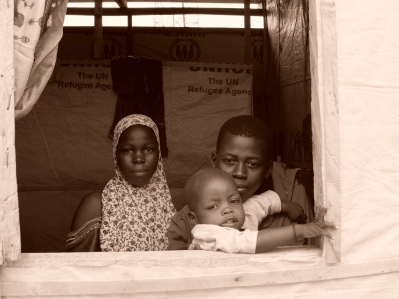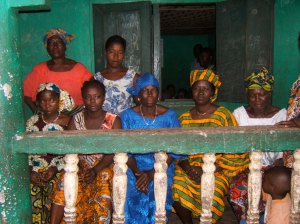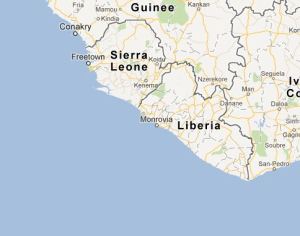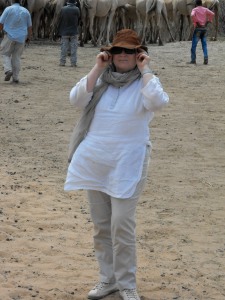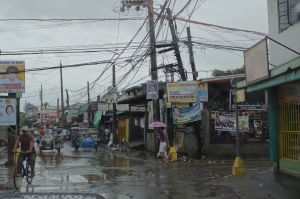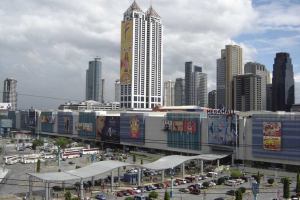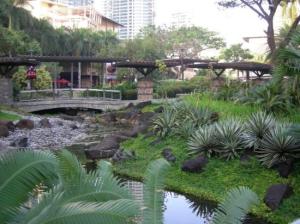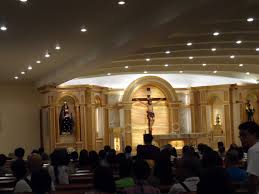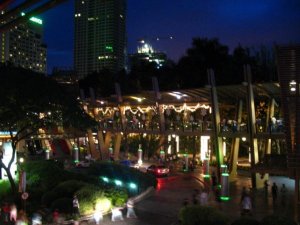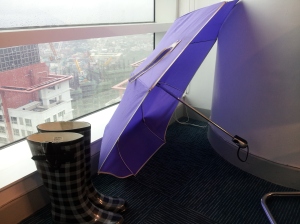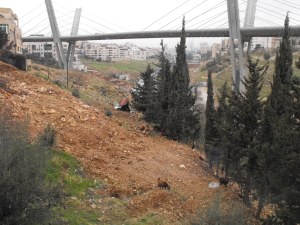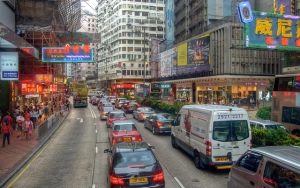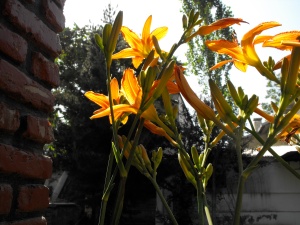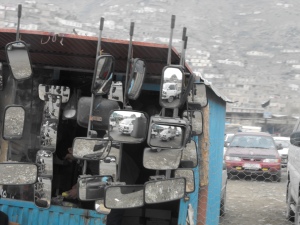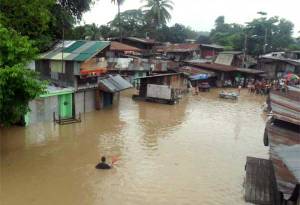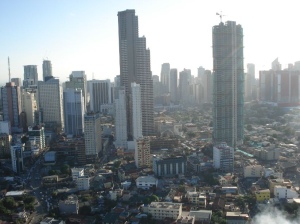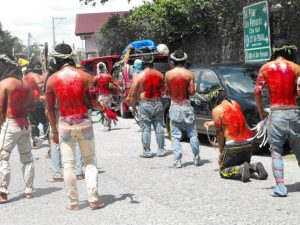 Somalia is a funny kind of a place. Not a funny ha ha place, but a complex and intriguing part of the world that continues to function despite a 20 year civil war. I first visited back in 2006 in the Gedo region with Trócaire and spent a week documenting the work of the one-doctor hospital they supported.
Somalia is a funny kind of a place. Not a funny ha ha place, but a complex and intriguing part of the world that continues to function despite a 20 year civil war. I first visited back in 2006 in the Gedo region with Trócaire and spent a week documenting the work of the one-doctor hospital they supported.
While the anarchy and lack of any infrastructure was blatant, it was fascinating at the same time to see how people coped with no government or governance. The Gedo region borders the Ethiopian border to the West and the Kenyan border to the South. Mogadishu is situated along the coast to the East of the country.
 Once a modern thriving city now it’s just one big settlement, with temporary shelters pitched everywhere for those who are displaced by the war and hunger. Once grand buildings including the Catholic Church, are riddled with bullet marks and many former government buildings are also occupied by displaced Somalis.
Once a modern thriving city now it’s just one big settlement, with temporary shelters pitched everywhere for those who are displaced by the war and hunger. Once grand buildings including the Catholic Church, are riddled with bullet marks and many former government buildings are also occupied by displaced Somalis.
Not a lot changed in Somalia in the intervening years, except many more women and children have suffered and certainly plenty of them died unnecessarily.
Once abandoned by the international community, the increasing incidents of piracy and the prospect that there is oil in Somalia, sees the international community trying once again to put some form of structure into the country.
The Transitional Federal Government (TFG) was put in to power by the international community and comprises of mainly corrupt elders (all men) who vie for power and control. You also have Somaliland and Puntland in the northern part of Somalia that have declared themselves as a republic, have their own currency but are recognized nowhere else in the world.
 Within Somaliland and Puntland, there are sections who want to secede to form yet either smaller states, so conflict flares up and people (mainly the women and children) take off seeking refuge. That is compounded by the odd drought and a bit of famine thrown in. The ubiquitous AK47 dictates much of what happens in Somalia, and not likely to see much improvement in the near future.
Within Somaliland and Puntland, there are sections who want to secede to form yet either smaller states, so conflict flares up and people (mainly the women and children) take off seeking refuge. That is compounded by the odd drought and a bit of famine thrown in. The ubiquitous AK47 dictates much of what happens in Somalia, and not likely to see much improvement in the near future.
A good portion of Somalia is a desert, sparsely covered in thorn trees which catch the plastic bags and it looks as if plastic-bag trees grow in Somalia. Sometimes when travelling through the countryside and approaching a settlement, it is akin to what you would imagine the aftermath of a devastating world war where the inhabitants of the planet, except for a few, have been wiped out.
 I don’t think I have ever visited a country with such a sanitation problem, but if you don’t have a functioning government, you don’t have an infrastructure to deal with these problems. We drive through the rubbish dump to get from Ethiopia to Somalia. I travelled through a few weeks ago not long after somebody had put a match to the plastic bags, bottles and general garbage. We drove on the sand track through the smoking plastic, where hundreds of buzzards about 4 feet in height and much bigger than the goats, all trampled around foraging for food. Unfortunately buzzards, goats and children are all vying for the same food. It was a biblical scene.
I don’t think I have ever visited a country with such a sanitation problem, but if you don’t have a functioning government, you don’t have an infrastructure to deal with these problems. We drive through the rubbish dump to get from Ethiopia to Somalia. I travelled through a few weeks ago not long after somebody had put a match to the plastic bags, bottles and general garbage. We drove on the sand track through the smoking plastic, where hundreds of buzzards about 4 feet in height and much bigger than the goats, all trampled around foraging for food. Unfortunately buzzards, goats and children are all vying for the same food. It was a biblical scene.
Further South across the border, in Dadaab in northern Kenya, there are a half million Somalis who fled famine and conflict and settled in huge refugee camps. The Kenyans don’t particularly want them there but the 1951 Convention on the Status of Refugees means that they can’t force the Somalis to return home. Some have been there for over 20 years. The Somalis are now heading for the Ethiopian border and there are 160,000 refugees registered in five camps in Dolo Ado, Ethiopia.
 Both Ethiopia and Kenya have sent troops into Somalia to try and stop Al Shabaab, the local terrorist organization, from gaining ground. Alongside other African troops and the TFG forces, they are gaining a modicum of control and for the first time in years Mogadishu has a sort of functioning government.
Both Ethiopia and Kenya have sent troops into Somalia to try and stop Al Shabaab, the local terrorist organization, from gaining ground. Alongside other African troops and the TFG forces, they are gaining a modicum of control and for the first time in years Mogadishu has a sort of functioning government.
My contract with the coordinating body of the UN is coming to a close.
Based in Nairobi, I was brought in to write reports and analysis of the situation in Somalia, and I ended up also trying to train people on how to write reports, gathering stories and taking photos. It would have helped a lot if they had reasonable English, but these are the little trials and tribulations that are sent to try a body. Some bright spark thought I didn’t have enough of a challenge and that I could be useful in Somalia coordinating the humanitarian efforts there, so I ended up back in Gedo attempting to foster some cross border cooperation to try and stem the flow of refugees into Ethiopia.
 The Somalis are not particularly welcome in Ethiopia either and the Ethiopians don’t make it easy on them. They put them in camps where their movement is restricted, where they have no access to any casual labour or a functioning telephone network. Somalis love to talk and the loss of a mobile network is real hardship for them. The Ethiopians have been paranoid about security for some time and it’s so bad that my Irish mobile doesn’t roam there.
The Somalis are not particularly welcome in Ethiopia either and the Ethiopians don’t make it easy on them. They put them in camps where their movement is restricted, where they have no access to any casual labour or a functioning telephone network. Somalis love to talk and the loss of a mobile network is real hardship for them. The Ethiopians have been paranoid about security for some time and it’s so bad that my Irish mobile doesn’t roam there.
I was travelling through the airport in Addis Ababa on my way to the border, the morning they announced the prime minister’s Meles demise. Trying to get a cup of coffee was almost impossible as all the waitresses in the coffee shop were weeping into the coffee cups because their leader had died. He may have facilitated greater access to food for the masses, but during his 20 year reign the population almost doubled, leaving twice as many people living in poverty and misery.
 Despite all the plaudits from people like David Cameron about Meles insightful vision for Africa, there was no democracy in Ethiopia and most members of the opposition and many journalists who criticized Meles now languish in jail along with people who were caught using Skype.
Despite all the plaudits from people like David Cameron about Meles insightful vision for Africa, there was no democracy in Ethiopia and most members of the opposition and many journalists who criticized Meles now languish in jail along with people who were caught using Skype.
The Ethiopians have invested heavily in trying to stop Al Shabaab making progress, they are afraid that the war will cross the border into Ethiopia and so sent in the troops, along with the Kenyans and other African countries. When I travel in through Ethiopia, I travel from Addis to Dolo Ado, where I then make the crossing to the sister town of Doolow, Somalia at an unrecognized border crossing.
I rarely travel directly from Nairobi to Doolow, which is a much easier trip and doesn’t involve getting up out of my warm bed at 1 a.m. for the airport to eventually arrive in Doolow at 10 a.m. ready for a days’ work.
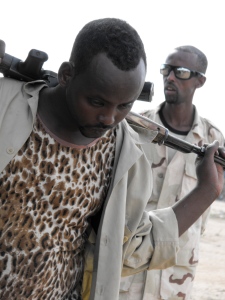 I moan about these things and the container where I sleep which measures 3 metres x 2 metres, with a small single bed and a tiny wardrobe. The loo is about 300 metres away and there were one or two occasions when I could have qualified for the London Olympics with a middle of the night sprint.
I moan about these things and the container where I sleep which measures 3 metres x 2 metres, with a small single bed and a tiny wardrobe. The loo is about 300 metres away and there were one or two occasions when I could have qualified for the London Olympics with a middle of the night sprint.
Then I meet people like Mary T who works for the Irish NGO Goal and stays in something akin to a hut and thinks she’s lucky, because she has a room on her own. Then I realize that my container is the Hilton Hotel of Dolo Ado and I am indeed the lucky one.
I arrived in Doolow Somalia on my birthday this year as part of a larger mission to visit Belet Xaawo (pronounced Haawa) and Luuq, areas recently taken over by the Ethiopian forces. We had the company of the UN Department of Safety and Security (UNDSS) who was organizing the road trip. Our armed escorts were members of the Somali TFG forces, who apparently organize a lot of the kidnappings in Somalia.
 Just as well I wasn’t aware of that small fact when we travelled. There is a gravel road between Doolow and Luuq, put down by the Italians a number of years ago, but driving on the sand is a lot easier on jarring bones, so we opted to travel across the desert. Although we had ordered and paid for cars with air-conditioning, there was none, and the windows were opened wide as we chocked on the dust kicked up by each car in front.
Just as well I wasn’t aware of that small fact when we travelled. There is a gravel road between Doolow and Luuq, put down by the Italians a number of years ago, but driving on the sand is a lot easier on jarring bones, so we opted to travel across the desert. Although we had ordered and paid for cars with air-conditioning, there was none, and the windows were opened wide as we chocked on the dust kicked up by each car in front.
Not the most pleasant journey I have experienced. Half way there, the convoy came to an abrupt stop as the escorts jumped off their pick-up truck and began running through the bush. Apparently they had spotted three deserters, still armed with their AK47s heading out into the bush.
Our DSS guy had to tell them that standard operating procedures would dictate they inform their base, who would then go chase the deserters, rather than leaving us literally like sitting ducks in the middle of the desert.
We travelled during Ramadan, where drinking and eating is forbidden during daylight hours. When we arrived in Luuq we had the usual meeting the authorities before heading to a settlement to see what conditions were like. The escorts had a different idea though, when they brought us to the air strip and proceeded to play chicken, speeding up and down at hair-raising speed, with dust flying everywhere. The poor DSS guy was back out lecturing the lads on standard operating procedures before we regrouped and headed off to visit the displaced.
Driving towards the settlement, a few women walking along noticed the convoy. With that some of them lifted their long skirts and took off at the speed of light towards the settlement. I have to say I was scratching my head wondering what they were up to. In the middle of Ramadan people tend to conserve energy during daylight hours and it was indeed an unusual sight to see skirts lifted and women, of all things, running.
It transpired they were heading towards the settlement, which was set up for the benefit of the visitors and totally fake. They were burning green wood for cooking at 10 in the morning… not something normally done during the fasting month. You’d need to be up early for the Somalis all the same.
During Ramadan there wasn’t even a cup of coffee to be had on the Somali side, so we crossed to have Ethiopian buna (coffee) on the far side of the bridge. As we approached the check point, the DSS colleague opened his arms to be searched by the soldier on the bridge.
When I approached the soldier reached out with his two hands aiming for my boobs. The other soldiers stood with their jaws dropped, until I waved my finger in the offending soldier’s face, explaining that I’m from the North side of Dublin and if attempted to as much as touch me, he’d be very, very sorry. Funny thing was that while he did not speak English he understood completely what I was saying to him.
My most recent visit in to Gedo was to conduct an assessment of the two settlements in Doolow town. One of my colleagues visited some settlements in Mogadishu and some of the displaced people were holding up signs saying ‘no more assessments’, in English of course. In the Doolow settlements, there hasn’t been a comprehensive assessment so I spent weeks organizing it.
The smaller settlement had decreased by 20 per cent, which is a rather large figure. As there wasn’t a 20 per cent increase in the numbers crossing over to Ethiopia, it is assumed that the residents of the smaller camp were in fact residents of Doolow who moved in to these awful settlements, hoping to get the handouts. In fairness the residents of the bigger settlement are in dire need and of decent shelter and food.
I stayed on the Ethiopian side and went to cross the bridge on the first day, to be told that foreigners were not permitted to cross over as it is an unrecognized crossing. After a visit to the Ethiopian development body, I received permission to cross and proceeded down to the bridge only to be stopped on the Ethiopian side.
A deeper paranoia has set in since the death of Meles and all sorts of excuses from ‘you need to leave your laptops with us’ to ‘we think you may be spies’ were offered as reason for us not to cross. I smiled and waited as dozens of phones calls were made, mainly on my phone, to get permission for the crossing.
My colleague wanted to go back, but I was a bit more persistent about getting across to complete the assessment. The UN compound on the other side has only recently opened. They employ security guards and I was reliably informed that one of the cleaning ladies was trained to search the women coming in to the compound.
We approached the gate and the guard on the gate, an auld lad with a henna-dyed beard, wearing a sarong, pushed a male colleague out of the way and lunged at my boobs to begin a body search. Unlike the soldier at the bridge, this pervert succeeded. The wagging finger came out again and like the soldier on the bridge he fully understood that I was not a happy bunny and his behavior was unacceptable.
I had to wait for the local security officer to eventually show to report the incident. News travels fast in Somalia, in fact news travels very fast and the whole town seemed to be aware of the boob incident. The following day I was busy at a meeting when word came that the elders would like to meet up. I naively thought it was about the hassle of the border crossing, but no, it was about the incident.
They arrived mid-morning, the deputy district commissioner and two of the elders – all men of course, no women elders. They told me that a meeting of the local authorities had been called the evening before to discuss the incident and not only was the guard’s behavior un-Islamic, it was also not within the Somali culture and they had great respect for women.
It’s not often I get an opportunity to lecture some Muslim men on feminism and the benefits of equality for women, so I laid it on about how they had to accept that women outside their culture were in positions of leadership etc. etc. They requested that I wouldn’t report the incident to the powers in the UN, so another opportunity for me to lay it on by pointing out that I needed this to go through DSS, otherwise women wouldn’t feel safe working in such an environment and it may even prevent women from working in Somalia. Oh, I enjoyed it all.
 When I eventually drew breath and they had an opportunity to interrupt, they told me that the meeting had decided that I needed to be compensated in the Somali way and they had voted to compensate me with a camel…… yes, a camel.
When I eventually drew breath and they had an opportunity to interrupt, they told me that the meeting had decided that I needed to be compensated in the Somali way and they had voted to compensate me with a camel…… yes, a camel.
Then they informed me that the camel was valuable and worth $300. I was impressed, thanked them for the camel, pointed out the difficulties in exporting the camel to Ireland and said I’d like to covert the camel to goats and donate them to the poorest women in the bigger settlement. Four goats, that’s what they told me the one camel was worth.
I travelled back across the border that evening and was told that a camel with three legs would be worth at least $1,500 and up to $2,000 or more on the Ethiopia side. The fecking elders were trying to short-change me. Talk about giving it with one hand and taking it back with the other!
I had to send word back to the elders to say that indeed I will be picking up my camel and if I have to march it down to the settlement, to hand it over to the women myself, then that’s what I will do. I return on Thursday for a one-day trip and will pick up my camel and hand it over. Let’s see how much the thing is really worth.
This has been a really interesting assignment, being able to get out and see what’s happening on ground puts real meaning on the work. Other than Erbil in Iraq, I never got outside the Green Zone in Baghdad to see any of the 1.5 million displaced people around Iraq. At least I got to Mogadishu, Garrowe and Gedo to see first-hand the condition the people are living in and it certainly gives a greater empathy and sense of urgency.
I’m not sure where the next assignment will be, but life full of surprises and hopefully I’ll be back working again after my much awaited holiday in the US of A in the month of October.
Until the next time….
Yours….Fagan



